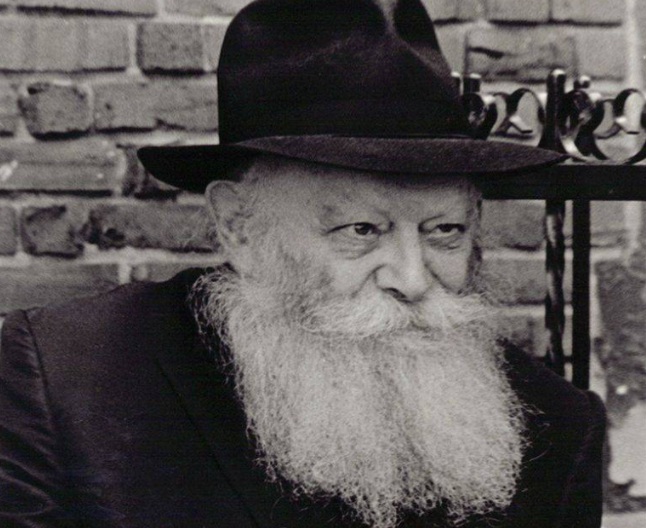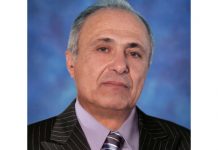Daily life at the court of 770 Eastern Parkway involved more than prayer, study, or Chabad business. Visitors came from all over the world – some for a blessing, others for a miracle. The Avner Institute presents anecdotes adapted of individuals who were greatly impacted – a cross-eyed girl, Bukharian refugee, childless Vizhnitzer Chassid, and Chief Rabbis of Israel.
Father to Millions
“Afterward, we calculated that these twenty-five minutes were the amount of time it took for the rabbis to reach the airport, whence they were flying directly to Eretz Yisroel. Apparently the Rebbe was providing them with a heavenly escort via his gaze as they drove to the airport.”
Rabbi Boruch Kahana
Daily life at the court of 770 Eastern Parkway involved more than prayer, study, or Chabad business. Visitors came from all over the world – some for a blessing, others for a miracle. The Avner Institute presents anecdotes adapted from the personal diary of Rabbi Boruch Kahana, from Kiryat Gat, Israel, describing encounters, formal or spontaneous, with the Rebbe and his predecessor, and those who were greatly impacted – a cross-eyed girl, Bukharian refugee, childless Vizhnitzer Chassid, and Chief Rabbis of Israel.
What He “Owed”
Rabbi Yisroel Jacobson was one of the first Lubavitcher activists to arrive to the United States, and the representative of the sixth (Previous) Lubavitcher Rebbe, Yosef Yitzchak Schneersohn – the Friedeker Rebbe, or Rebbe Rayatz — during the 1920s and 1930s.
In 1930 the Friedeker Rebbe spent the month of Tishrei in New York. After much effort Rabbi Jacobson managed to procure an esrog from Calabria, Italy, the choice of esrog for the Rebbe.
At the time, Rabbi Jacobson’s oldest daughter, Chaya Sara, who had immigrated to the U.S. with her father, was nine years old. While back in Russia, the shock of encountering a fire during a walk down a street had left her cross-eyed. In the following story, the Friedeker Rebbe shows his appreciation for the esrog by bestowing a strange but wonderful blessing to Rabbi Jacobson.
From the diary of Rabbi Boruch Kahana:
The Rebbe paid what he “owed” in the best possible way.
It was twilight following the first day of Chol HaMoed Sukkos. After the Rebbe thanked me profusely for the “treasure” of an esrog, Rabbi Jacobson brought his daughter to him for a blessing.
Shyly she stood before him. In a fatherly tone the Rebbe commanded, “Look into my eyes.”
Overcome with emotion, Rabbi Jacobson urged her, “Chaya Sarale, look at the Rebbe.”
The Rebbe turned to him, noticing his excitement.
“She sees straight,” he declared.
From then on, her eyes returned to normal and stayed normal.
“Mehudar” eyes for a mehudar esrog. Mehudar—exalting a commandment—leads to exalted eyes.
“Whoever specifies more is praiseworthy”
Rabbi Boruch Kahana relates how the current Rebbe Menachem Mendel Schneerson encouraged him to keep a diary and faithfully record events.
During the year 5750 [1990], I had the privilege of writing the diary for Beis Chayeinu, a newsletter describing daily life around the Rebbe’s court at 770. Publication of the newsletter was started then in Eretz Yisroel by my brother-in-law, Rabbi Yitzchok Brandler, with the Rebbe’s encouragement.
In response to Issue #17, the Rebbe answered: “Received and t’shuos chein [great blessings], and certainly they will continue with this, and whoever specifies more is praiseworthy. I will mention it at the tziyun,” referring to the gravesite of his father-in-law, the Rebbe Rayatz.
Subsequently, I wrote to the Rebbe with a request for a blessing that the involvement in writing the diary for Beis Chayeinu not interfere with my learning. The Rebbe circled the words not interfere and wrote: “And to the contrary, I will mention it at the tziyun.”
“There will be that too”
The Rebbe’s concern for his guests went beyond food and drink.
It was Tishrei 5748 (1983-84) — Shnas Hakhel, the year following shmittah, when the Land of Israel took a sabbatical. A huge crowd had come to Crown Heights. Rabbi Moshe Yaroslavsky, peace be with him, who oversaw hachnasas orchim, hospitality, agonized over finding enough places for all the guests.
One day, I was standing in the hallway near Gan Eden HaTachton – the “lower Garden of Eden,” also known as the Rebbe’s office — when the Rebbe emerged.
He noticed nearby an anxious Reb Moshe.
“Is there food?” the Rebbe asked.
Reb Moshe nodded.
The Rebbe asked, “Are there drinks?”
Again Reb Moshe nodded.
The Rebbe asked, “Are there places to sleep?”
Reb Moshe was silent.
The Rebbe then smiled. “Nu, there will be that too,” he announced, raising both hands.
“The Rebbe said yes”
The Rebbe often displayed startingly clear vision.
It was 5749 [1989]. One afternoon, entering 770 for Mincha service, the Rebbe noticed a Bukharian Jew wearing a Bukharian skullcap. When the Rebbe passed by him, the man asked the Rebbe something in Russian.
The Rebbe stopped and listened. Suddenly he raised his head, as though gazing at something above, and said, “Da [yes].” Then he continued walking to his place.
At the end of the service, we hurried over to the man and asked him about his encounter with the Rebbe.
The man explained, “During World War Two I was cut off from my father. Since then, I had lost track of my father’s whereabouts.”
Tears welled into his eyes. “I asked the Rebbe, is my father still alive? And the Rebbe said yes.”
Brief but Powerful
The Rebbe could offer salvation in one word.
One day, a Vizhnitzer Chassid came into 770. I was surprised to see a non-Lubavitcher visitor, as I assumed he lived elsewhere in Brooklyn – Williamsburg, perhaps, or Boro Park.
Casually, I struck up a conversation with him. “What brings you here to Crown Heights?”
He told me how for many years he did not have children. He and his wife went to many doctors, but nothing helped. He received countless blessings from many distinguished Chassidic Rebbes. Nonetheless, he remained childless.
The previous year, however, he passed by the Rebbe, asking for a blessing.
The Rebbe said, “B’karov. Soon.”
Sure enough, that year the man’s wife gave birth.
L’Chaim!
Gifts to and from the Rebbe came in all forms and all times.
It was the morning of Erev Pesach. Right after Shacharis, the morning prayer, the Rebbe sent via his secretary, Rabbi Itzchak Mordechai Chadakov, a bottle of vodka from Russia for the bachurim, yeshiva students, to finish before the final time for eating chometz, leavened products.
On the bottle was written (apparently by the original sender): “Der Rebbe zol zain gezunt. Dovid. The Rebbe should stay well. Dovid.”
Of course, we bachurim happily said l’chaim – made a toast — on it.
“All good things come unexpectedly”
The Rebbe always enjoyed a pleasant surprise.
One day in 5750 [1990], Rabbi Chaim Gutnick, peace be with him, came to New York all the way from Australia. He walked into 770 just at the end of Mincha. Quietly he remained at the last door at the end of the zal, hall, downstairs.
When the Rebbe passed by him he stopped.
“All good things come unexpectedly,” he said beaming.
“Heavenly Escort”
The Rebbe took quite seriously our forefather Abraham, host extraordinaire.
It was summer, 5749 [1989]. The Israeli Chief Rabbis Mordechai Eliyahu and Avraham Shapira had been deep in yechidus, private audience, with the Rebbe for over an hour. At the end, the Rebbe escorted them out of the office and waited at the main entrance to 770. We bachurim stood on the two sides of the path and sang, “Ki B’Simcha Seitzei’u” [“Those who Leave Happily”], which the Rebbe encouraged with the waving of his hand.
After the rabbis entered their car, the secretary motioned that they left. Nevertheless, the Rebbe remained there and gazed off into the distance for a long time, while we continued singing. The secretary motioned again, but the Rebbe continued to stand there.
This went on for twenty-five minutes.
Afterward, we calculated that these twenty-five minutes were the amount of time it took for the rabbis to reach the airport, whence they were flying directly to Eretz Yisroel. Apparently the Rebbe was providing them with a heavenly escort via his gaze as they drove to the airport.
credit collive.com










